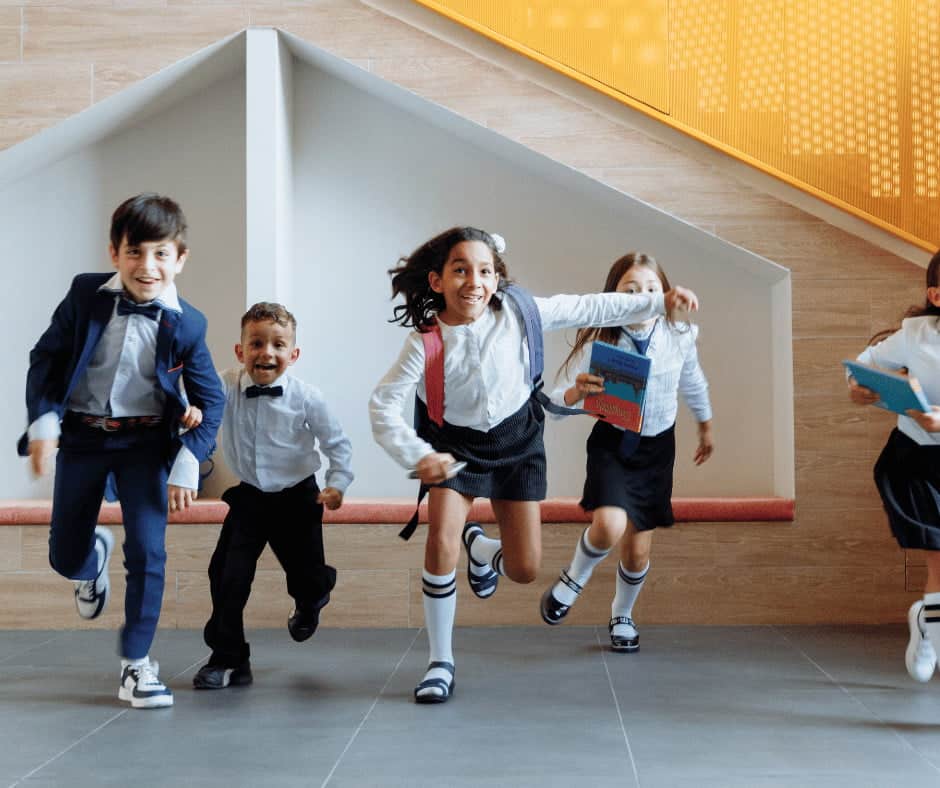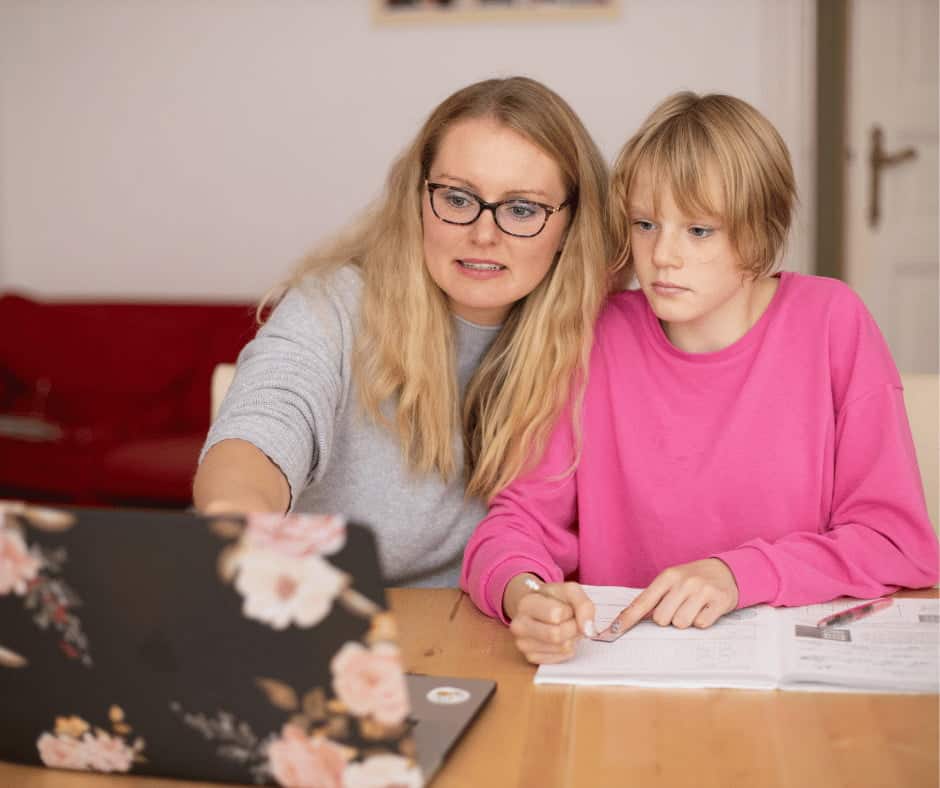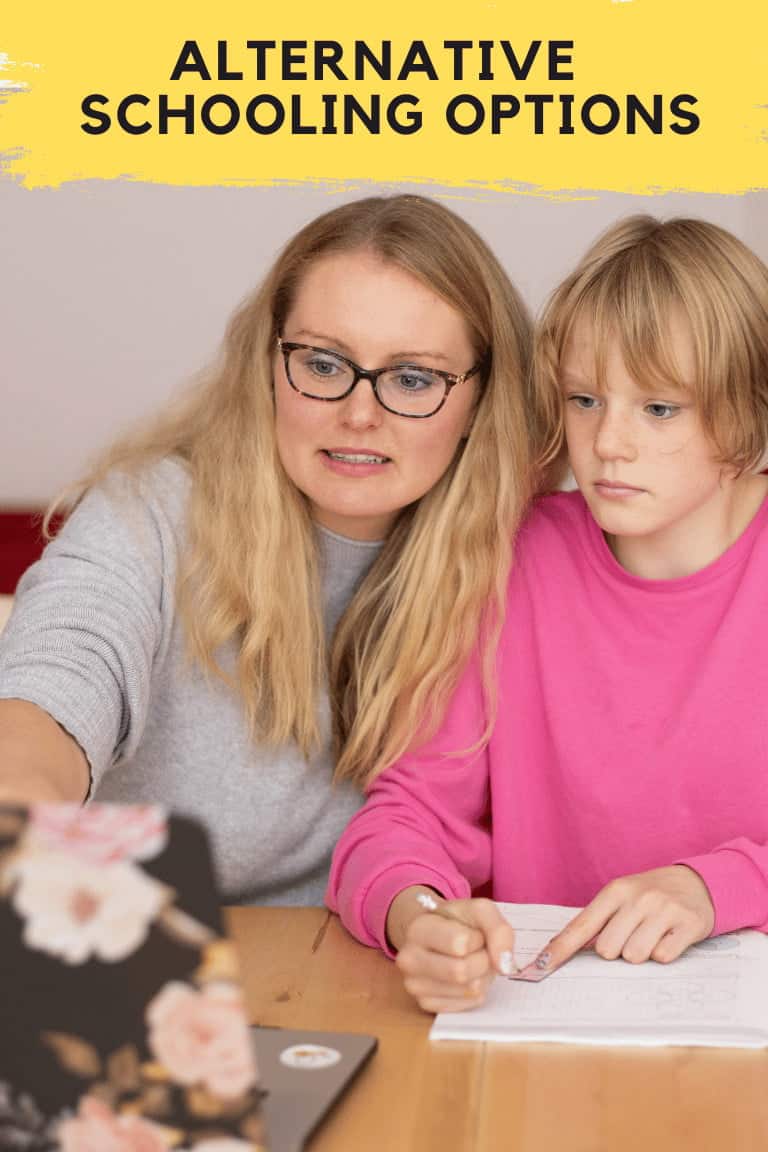The Top Alternative Schooling Options Available To You
There is a demand for alternative schooling options like never before.
However, the real question is, “Do you know what your options are?”
Many parents and teachers have mixed feelings about the future of traditional public schools. This has them researching options, and there are many options out there.
In this article, we will discuss several alternative school options that will hopefully fit the needs of your student(s).
One or two of these options you may have never heard of, and that’s because parents and teachers are challenging the status quo of education.
Educators are constantly developing new models to meet the changing needs of our students and prepare them for an ever-changing world.
Types of Alternative Schools and Educational Programs
- Micro-schools
- Hybrid school
- Charter Schools
- Cyber Charter Schools
- Independent Schools
- Magnet Schools
- Homeschooling (7 Types)
- Parochial Schools
According to Wikipedia’s definition of an alternative school,
An alternative school is an educational establishment with a curriculum and methods that are nontraditional.
Such schools offer a wide range of philosophies and teaching methods; some have strong political, scholarly, or philosophical orientations, while others are more ad hoc assemblies of teachers and students dissatisfied with some aspect of mainstream or traditional education.
Basically, any school that falls outside the traditional school model is an alternative school.

Micro-schools As Alternative Schooling Options
Microschools are just that—small schools.
They are still very much private schools, but they are often run more like modern-day one-room schoolhouses.
You can have as few as two students (most have at least five) or as many as 100 (some may have a little more).
Some are independent, while others belong to micro-school networks.
These environments are very flexible and free from the bureaucracy of public schools.
You don’t have to participate in standardized testing or use a mandatory curriculum.
I like to think of micro-schools as what you would get if a homeschool program and a private school had a baby.
Seasoned educators or educational experts typically oversee the operation of micro-schools.
On the other hand, homeschooling parents tend to take on the responsibility of teaching themselves.
This ensures that students benefit from the expertise and guidance of qualified educators who are well-versed in pedagogical methods, curriculum design, and assessment techniques.
The presence of these professionals elevates the overall quality of education and adds a layer of accountability to the learning process.
However, there are micro-schools that are started and run by parents without educational backgrounds, and they are still extremely effective.
One such parent wrote about her journey of starting a micro-school in Rebel Educator: Create Classrooms Where Impact and Imagination Meet

(Some affiliate links are on this blog – which just means if you purchase through my link, I get a small commission. You still pay the exact same price. Whenever you talk about a product you love in your own business, I encourage you to use affiliate links too. (Thanks so much for supporting my small business and helping to keep the lights on over here. )
If you are interested in learning more about microschools or how you can start one, click here.
If you are looking for affordable alternative schools in Atlanta, try The Triumph School. I, a teacher, run it.
Our secret sauce is that we work with students who identify as learning differently.
So whether they are students with learning issues such as ADHD or dyslexia, or they are gifted and need an environment where they can explore their interests, we have a seat for them.
Many teachers are venturing into the business side of school, not only for students but for themselves.
There has been an exodus of teachers from the field of education; however, some don’t want to leave teaching, so they leave the “school” as they know it and create their own learning environments.
Microschools are emerging as great and effective alternative schooling options.
More On Microschools
As the educational landscape continues to evolve, microschools have emerged as a promising alternative to public schools, homeschooling, and private schools.
They combine the benefits of personalized learning, professional guidance, social interaction, and a sense of community to offer a holistic educational experience.
If you’re a parent looking for a unique approach to education that emphasizes personalized development while still retaining the benefits of traditional schooling, microschools could be an appealing and practical choice.
By blending the best of both worlds, microschools pave the way for a brighter future of education—one that empowers students to thrive academically, socially, and personally.
Hybrid Schools As Alternative Schooling Options
By now, you’ve probably come across the term “hybrid schooling.” But you may need a little more understanding.
Lately, this type of schooling has been getting a lot of attention, especially as more parents are looking for alternatives to regular public schools for their kids.
But I totally get it—there might be some confusion between hybrid public or private schools and hybrid homeschooling.
So, let’s clear things up a bit.
What is hybrid schooling?
Hybrid schooling is like a mix. Students literally split their time between a physical brick-and-mortar school setting and remote online classes.
Many microschools are offering a hybrid option to parents.
What is hybrid homeschooling?
Then there’s hybrid homeschooling. These are schools that are made for homeschoolers.
Students split their time between learning at home and going to a physical location for classes and/or socializing with other homeschoolers.
Charter Schools As Alternative Schooling Options

The National Alliance for Public Charter Schools defines charter schools as “independently-operated public schools that have the freedom to design classrooms that meet their student’s needs.”
Charter schools were established with the intention of providing parents with alternatives to traditional public education.
They are intended to promote better student learning, innovative teaching, and school choice.
However, many will argue that they have not lived up to their promise of being a better alternative for students and parents.
Nevertheless, these schools are held to the same accountability for measurable academic standards as district schools.
They are also held to the same high academic standards as their public school counterparts.
Above all, charter schools are public schools that must still meet state and federal standards.
Cyber Charter Schools As Alternative Schooling Options
Similar to other charter schools, cyber charter schools are autonomous public educational institutions that uphold rigorous academic standards.
However, what sets them apart from traditional brick-and-mortar schools is their ability to offer education from the comfort of one’s home.
The online approach gives parents the flexibility to tailor a schedule according to their preferences.
In this setup, both parents and educators share active roles in guiding cyber charter students’ learning journeys.
It’s important to note that cyber charter schools are indeed public schools.
They receive their funding from public sources based on the number of enrolled students.
They monitor attendance, adhere to state-mandated assessment requirements, and are accountable to the same state and federal standards as local district schools.
Many cyber charter schools provide students with two distinct options for their instructional approach:
1. live online classes conducted by certified teachers and peers; and
2. a more adaptable, self-paced setup overseen by teachers.
Some schools might even allow students to blend elements from both methods.
In the live online classes, it’s kind of like your regular school setup, but online.
Students attend class daily, interact with teachers and classmates, and engage in group activities.
This approach promotes collaboration, socialization, and teamwork.
It’s interactive and lets parents join in without having to take on the entire teaching role.
Now, some cyber schools allow students and parents to collaborate with the school to create a learning schedule that fits their family’s needs.
Here, students take more control over their learning pace, but teachers are still there to supervise and provide support.
For instance, teachers will handle planning, progress tracking, and daily support. They even set up office hours for one-on-one help.
In the world of cyberschooling, parents play a big part. They team up with the school to make sure their child gets the best education.
Since learning happens at home, parents need to be around to supervise and lend a hand if their child hits a roadblock.
In some states, the adult at home is called the Learning Coach. This person is there to provide academic support and stay with the student during school time.
Now, here’s a common question: “How do students socialize?”
Well, cyber charter schools know this is important too. They often arrange field trips where students, parents, and teachers meet up across the state.
Plus, there are virtual clubs for students with shared interests.
And if students want, they can join in on extracurricular stuff in their local school district—think sports teams and social clubs.

Independent Schools As Alternative Schooling Options
Let’s talk about independent schools. These are the kinds of private schools that are kind of like their own bosses.
A board of directors is responsible for the governance of independent schools.
They don’t answer to any other organizations. However, these private schools don’t get cash from the government unless the state has a school choice program.
They mainly run on money from tuition and generous people who like to give to a good cause.
There are different types of independent schools. Some have their own specialties, like focusing on certain areas of study.
And get this: they can be mixed-gender or just one gender, and they might offer daytime classes or even boarding options.
Magnet Schools As Alternative Schooling Options
Magnet schools are yet another choice for families in Georgia and other states.
These are special kinds of public schools that dive deep into certain interests or subjects.
Imagine focusing on performing arts, languages, leadership, or getting all nerdy with STEM (that’s science, technology, engineering, and math)—that’s what magnet schools are all about, according to Magnet Schools of America.
Now, here’s the twist: magnet schools aren’t like charter schools that do their own thing away from the school district.
Nope, they’re part of the local school district. To become a magnet school, you typically need to complete a special application and receive approval.
They still cover the regular stuff like reading and math, but they also dive headfirst into their special area of interest.
Homeschooling As Alternative Schooling Options
Another avenue that parents can consider is homeschooling.
This educational choice involves parents taking on the role of educators for their children within the confines of their own home, setting it apart from both public and private schooling.
It’s important to understand that the specifics of homeschooling regulations differ from one state to another.
However, common to them all is that parents are tasked with choosing their own curriculum, often opting for a blend of diverse educational materials.
This entails lots of research to identify the most suitable curriculum that fulfills requirements, meets the needs of their students, and makes things a little easier for them.
There are many types of homeschooling found on Time4Learning which include:
- Traditional Homeschooling: This is the most common model, where students are taught from a chosen curriculum at home.
- Worldschooling: Families travel the world to gain a global view of schooling.
- Unschooling: Educational choices fall into the hands of the child as children explore their natural curiosities through materials provided in their environment.
- Classical Homeschooling: Families teach modern-day lessons by utilizing educational methods spanning back to the Middle Ages.
- Montessori Homeschooling: Maria Montessori, a historical educator, developed a method of learning involving play, independence, and repetition.
- Charlotte Mason Homeschooling: This approach follows the philosophy of Charlotte Mason, a 19th-century British educator, which incorporates education into all aspects of your life.
- Waldorf Homeschooling: Rudolf Steiner developed a type of education that focused on nature and their surroundings.

Parochial Schools As Alternative Schooling Options
Parochial schools are religious private schools. They are often supported by a particular church or parish, but not always.
In addition to their more traditional core curriculum, religious schools have a focus in their curriculum on learning the affiliated religion.
Parochial schools are not publicly funded, unless the state has a school choice program. Then they may get some state funds.
Like independent schools, parochial schools do not have to follow the same regulations and processes as public schools, though many regulations still exist.
For example, they don’t have to honor the IEP. Students who attend these private schools give up their right to an education under IDEA.
Conclusion of Alternative Schooling Options
When you dive into the ocean of choices that exist in most states, trust me, it’s easy to start feeling a tad overwhelmed.
But hey, each choice has its own cool perks and little hurdles, and here’s the thing, every family is different.
Some parents want to be in the front row of their kid’s learning journey, soaking up every moment.
Others, though, might want to take a bit of a back seat.
Picking a school is like picking the perfect pair of shoes—it’s personal. Because guess what? Each kiddo is unique, with their own set of needs and what makes them tick.
Just remember, you’ve got the power to choose what’s best for your child’s education.
You’re in the driver’s seat!
Oh, and by the way, speaking of alternative schooling options, did you know that the 2020-2021 school year witnessed a whopping 63% surge in homeschooling families?
And get this, even after schools swung their doors open again, the following school year, 2021-2022, only saw a 17% dip in that number.
Yep, you heard right—that means there are still loads of new families opting for alternative ways of educating their kids.
Quite the shift, huh?
Here are a few other articles you may like.
- What are microschools?
- 6 Reasons Microschools Are Refreshing Alternatives to Homeschooling
- Microschooling: Innovative Educational Options for Parents
- School Branding For Micro Schools (The BEST Way To Develop It!)
- Marketing for Schools: 10+ BEST Micro-School Marketing Strategies
- Legal Business Structure For Microschools

0 Comments